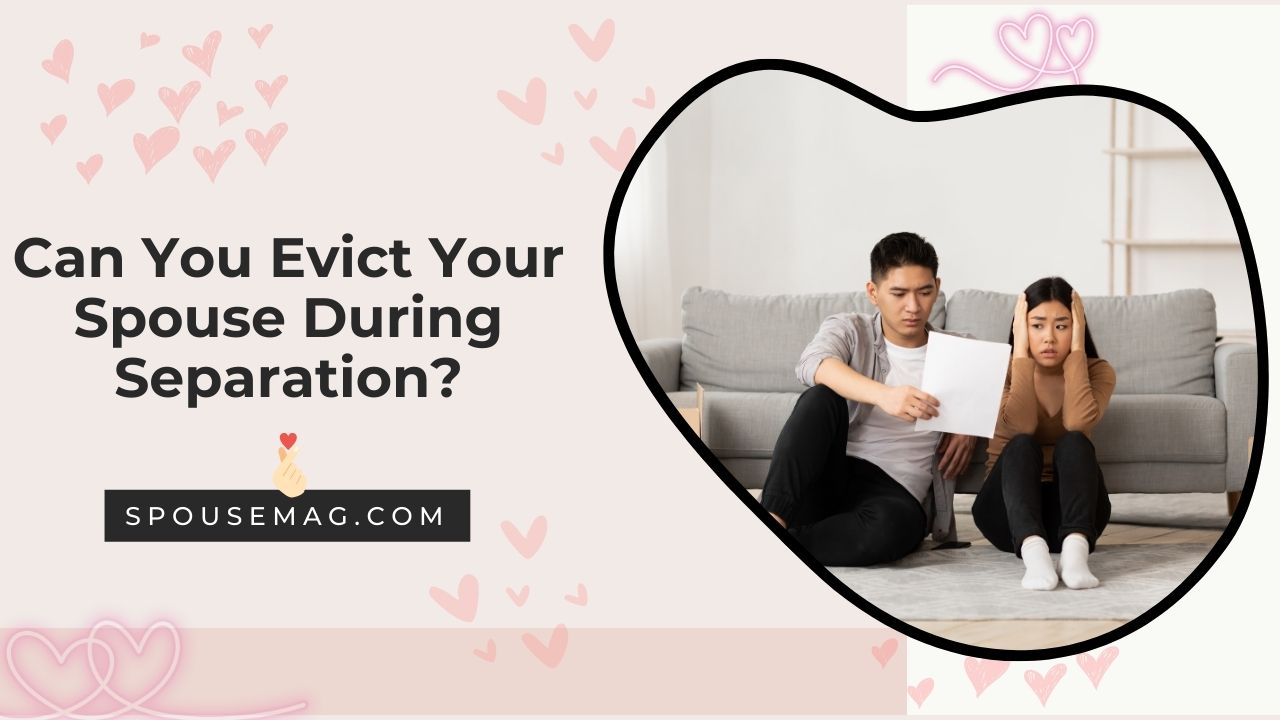
Evicting a spouse from the home is usually not allowed without a court order. Even if the relationship is tough, both have the right to stay in the house.
Only a judge decides who stays and leaves, especially in cases of danger and abuse.
The court’s decision protects everyone involved. Talking to a trusted adult and lawyer is important if facing problems at home. In most situations, it’s best to work out living arrangements peacefully and seek legal help before trying to force a spouse out of the house.
Spousal Rights and the Marital Home
In most jurisdictions, both spouses have the right to reside in the marital home, regardless of whose name appears on the ownership documents (deed or lease). This right stems from the concept of marital ownership, where the property is considered jointly held by the spouses during the marriage.
Even if one spouse contributed more financially towards purchasing or maintaining the home, the other spouse still has legal occupancy rights.
Situations Where You Can Evict Your Spouse
While both spouses have a right to remain in the marital home, there are certain situations where one spouse can evict the other. These include:
1. Domestic Violence
If one spouse experiences domestic violence or abuse from the other, they seek a court order to remove the abusive spouse from the marital home.
This is an important step in ensuring safety and creating a protective environment.
Evidence of domestic violence, including police reports, medical records, or witness testimonies, strengthens the case for obtaining a court order for removal.
2. Property Ownership Before Marriage
In some cases, one spouse has owned the property solely before the marriage. If the property remained separate during the marriage (no joint ownership established), the spouse who solely owned it has a stronger argument for removing the other spouse.
However, state laws regarding separate property during marriage can differ. Consulting a lawyer familiar with your state’s specific laws is crucial in such situations.
The Legal Process for Spousal Removal
Evicting a spouse typically requires a court order. The process involves filing a petition with the family court, outlining the reasons for seeking spousal removal, and presenting evidence to support the claim. It’s important to note that this is a simplified overview, and the exact steps vary by state.
Here’s a general breakdown of the process:
- Filing a Petition: You’ll need to file a petition with the family court in the appropriate jurisdiction. This petition will outline the nature of the case – separation, divorce, or request for spousal removal.
- Temporary Orders: Depending on the urgency of the situation, you can request temporary orders from the court. These temporary orders restrict one spouse’s access to the marital home or grant exclusive occupancy to the other spouse while the case progresses.
- Evidence and Hearing: You’ll need to present evidence to support your request for spousal removal. This could include police reports, medical records, witness testimonies, or financial documentation (if relevant to separate property claims). A court hearing will be held where both parties present their arguments.
- Court Order: Based on the evidence presented, the judge will decide on spousal removal. The court order grants exclusive occupancy to one spouse or establishes a timeframe for the other spouse to vacate the property.
Seeking Legal Guidance is Essential
The legal complexities surrounding spousal removal during separation or divorce necessitate seeking legal advice from a qualified family law attorney. An attorney provides valuable guidance specific to your situation, including:
- Understanding your rights and options under state law
- Navigating the court system, filing necessary petitions, and presenting evidence effectively
- Negotiating temporary living arrangements with your spouse, if possible
- Protecting your safety and well-being in instances of domestic violence
Real-Life Anecdotes: Navigating the Challenges of Eviction
William, who recently went through a difficult divorce, shares his experience of evicting his spouse. “I never thought I’d be in a situation where I’d have to evict my partner, but it became necessary for my own well-being. It was a tough decision, but I finally found the courage to take control of my life.”
Steve, who faced a similar situation, recounts the emotional toll of the process. “Evicting your spouse is not just a legal battle, it’s a personal one too. You’re forced to confront the end of your relationship and the uncertainty of what’s next. But with the right support, you can get through it.”
Farah, a survivor of domestic violence, bravely shares her story of evicting her abusive spouse. “I thought I was trapped, but I found the strength to take back control of my life. With the help of a lawyer and a support system, I was able to evict my spouse and start anew.”
Jamaima, who navigated a complex eviction process, highlights the importance of seeking legal guidance. “I thought I could handle it alone, but the legal system is overwhelming. With a lawyer by my side, I was able to protect my rights and secure a safer future for myself and my children.”
Allen, who has personally experienced the challenges of eviction, emphasizes the need for empathy and understanding. “Evicting a spouse is never easy, but sometimes it’s necessary to protect yourself and your loved ones. Remember, you’re not alone, and there is support available to help you through this difficult time.”
Conclusion
Navigating the legalities of spousal removal during separation or divorce is challenging and emotionally draining. It is essential to seek legal advice from a qualified attorney who guides you through the process and ensures that your rights are protected.
Remember, the court’s primary concern is the welfare of all parties involved, including children. By understanding your rights and seeking legal guidance, you can make informed decisions and move forward with confidence.

As a married wife, founder, and editor of SpouseMag.com – these guides are based on my own personal experiences, observations, research and insights. I am transparent about being inspired by the life and work of the two greatest experts in the relationship space – Dr. John and Julia Gottman, and Harville and Helen. They two are some of the strongest couples, researchers, authors, and counselors when it comes to marriage and relationships. My advice and guides are based on my insights and research, and they are not an alternative to professional advice.






